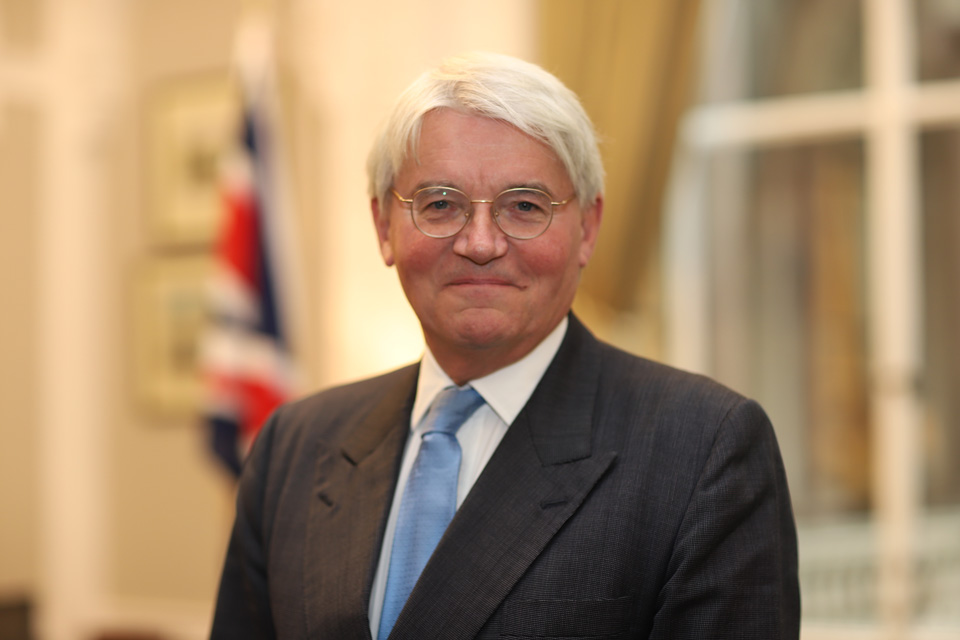Ministerial statement on Sudan
Ministerial statement on Sudan by the Secretary of State for International Development, Andrew Mitchell.

I wish to update the House on my visit to Sudan between 8-11 November 2010. During my visit to Khartoum, El-Fasher and Juba, I met with: Vice President, Ali Osman Taha; President of the Government of Southern Sudan, Salva Kiir; Presidential Adviser on Darfur, Ghazi Salah Al-Din Al-Atabani; other Government Ministers; a range of Sudan’s political leaders; the Chairman of the Southern Sudan Referendum Commission (SSRC) Professor Ibrahim Khalil; and members of civil society. I also met with: visiting UN Under-Secretary Generals, Baroness Amos and Alain Le Roy; UN Mission in Sudan (UNMIS) Special Representative Haile Menkerios; UN / African Union Mission in Darfur (UNAMID) Joint Special Representative Ibrahim Gambari; members of the UN Country Team; humanitarian actors; and NGOs. In Juba, I opened the new HMG Office, which will house staff from DFID, the FCO, the Stabilisation Unit and the Ministry of Defence.
In North and South Sudan, I stressed the importance of the referendum being credible, peaceful and on time. I delivered messages on the importance of both parties agreeing the outstanding Comprehensive Peace Agreement (CPA) issues such as Abyei, citizenship and the border. The UK is actively supporting the referendum, including through financial support to the UN Development Programme Basket Fund for the referendum process which will provide voter education, civic education, pratical assistance and technical support. We are also providing technical assistance to the talks on border demarcation and security arrangements.
I made clear to the Governments in the North and South that the UK is committed to the longer-term future of both North and South Sudan whatever the outcome of the referendum. Through successful completion and implementation of the CPA and progress towards peace and justice in Darfur, the North has an opportunity to change its political relationships with the international community. The Government of Southern Sudan must set out a vision for the future with which its citizens can engage, including making appropriate investments to support diversification of the economy into non-oil activity. The UK has a substantial development programme in South Sudan, an area where thousands of adults are illiterate and women and children are more likely to die in childbirth than complete primary education. Amongst other benefits, this programme has already provided basic services for over 1.8 million people so far. We remain committed to supporting the long-term future of Southern Sudan, and working with the Government to help improve the lives of those who live there.
I found the situation in Darfur much changed since the Prime Minister and I visited in 2006, but in discussions with Government Ministers and Advisers, I underlined my concern about the security situation in parts of the three states. I called for the immediate and unconditional release of the four European nationals currently being held hostage (1 Hungarian UNAMID peacekeeper and 3 Latvian World Food Programme pilots), and stressed the need for the full and unhindered access for humanitarian workers and Peacekeepers. I urged all sides to refrain from military escalation in Darfur, and to engage constructively with the AU/UN Mediation to work towards an inclusive and sustainable peace agreement for Darfur. I reiterated the UK’s support for the International Criminal Court and urged the Government of Sudan to engage with the Court.
I underlined to senior UN representatives that the international community could not be caught short in its preparedness to respond to a referendum-related humanitarian crisis in Sudan. I stressed the need for the UN and its agencies to have comprehensive contingency plans in place to address any potential future challenges.
The UK is determined to help improve the lives of the Sudanese people. But only if peace is kept and conflict avoided, will development succeed and those lives truly be improved.